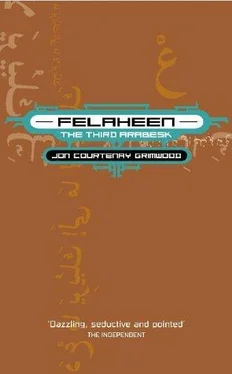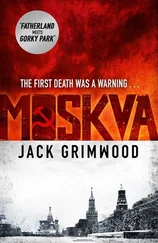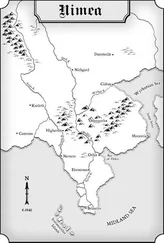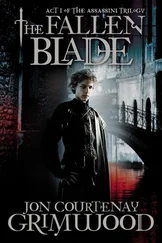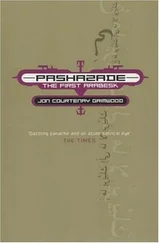"They have a radio station?" Hani asked.
"A pirate station," Murad stressed. "Which changes frequency every night. You have to look for it."
Hani nodded. "Zara's brother has a pirate station," she said. "But Avatar only has to change every week."
"Whose's Zara?"
"My uncle's mistress," said Hani, then stared in bewilderment at the elderly NCO who suddenly broke into a coughing fit.
"The AN want to overthrow the government," Murad said. "But they didn't try to kill my father." A tremble in his voice was the first sign Raf had sensed that the boy was not nearly as composed as he wanted to appear.
"I thought you said you were in the government?" Hani sounded puzzled.
"Minister for Education," Murad agreed. "Also for archaeology. Kashif's everything else apart from bioscience and technology. The Emir kept those for himself."
"Did you see the attack?" Raf demanded.
Murad nodded. "We were there," he said. "I was invited and Hani invited herself. We sat next to Kashif Pasha as it happened."
"When what happened?" Raf asked.
"Someone tried to shoot the Emir," said Hani. "Eugenie died saving him. And two guards, a Sufi and a musician. Now everyone's arguing about . . ."
"Who tried?"
Hani paused. She'd got older without him noticing, Raf realized. More confident. A little bit taller. He tried to remember back to that age and couldn't.
"Well," said Murad, "there was this waiter."
"You can't go in there." The birdlike woman was out of her seat before Raf got halfway to the door of Kashif Pasha's inner office.
"Tell me about it," Raf said tiredly. People telling him where he couldn't go was getting to be something of a refrain. He kept walking and the woman dropped her hand, as if she'd somehow just scalded her fingers on the cloth of his sleeve.
Used to wielding power but resigned to it always belonging to someone else, the woman fell back on formality. "Can I ask if you have an appointment?"
"I don't need one," said Raf. "Police business." He pulled a leather cardholder from his pocket and flipped it open, flashing an identity card he'd taken off Kashif's unconscious soldier. It was shut again before her eyes even had time to focus.
"Well, he's not here." The woman's hair beneath her scarf was thinning and deep lines slashed down both sides of a thin mouth. The world had not been kind to her. "So you'll still have to come back."
"Even better," said Raf, hand already turning an enamel door knob. "That gives me a chance to search his office."
"You can't . . ."
"What's your name?" Raf asked her.
"Leila el-Hasan. I'm the pasha's private secretary."
"Get yourself another job then," Raf told her, not unkindly, and shut Kashif's door behind him, shooting its bolt.
The décor could go either way. High Arabesque, which got called Moorish in guidebooks, or ersatz European, which usually meant oak panels, dark furniture and oil paintings. Those were the default options when it came to North African government buildings. There was a third alternative, of course. Seattle Blond was what you got if you fed old Scandinavian through late-period Edo, but pale kelims and steam-shaped ash was never going to be Kashif Pasha's thing.
What Raf found was High Arabesque. An office centred around an alabaster fountain so massive that this bit of the Bardo had to be last century despite the obvious antiquity of the horseshoe arch surrounding its door. No floor underpinned with anything but steel could have supported that weight. Beyond the fountain began carpets, large and probably priceless; obscured by a faded leather ottoman and a couple of wing chairs. And against the farthest wall, beneath a window so vast it needed sandstone pillars down the middle to support it, stood an office desk, notable only for its ordinariness.
Raf read the subtext in a single glance. Look at the magnificence imposed upon me by birth. Notice how modest my own expectations. Contrast the two and be aware of my modernity. And it must work, because half of Europe regarded Kashif Pasha as Ifriqiya's up-and-coming saviour.
The only thing missing from the room was a portrait of the Emir and it didn't take a man of Raf's talents to read that. Although he read the subtext below the subtext, that suggested that while Kashif was ambitious he lacked advisers to help him plan his moves with subtlety.
But then lack of subtlety was never a problem when dealing with Paris, Washington or Berlin. Particularly Berlin.
None of Kashif's desk drawers were locked. Which either said look how open I am, or else, so great is my power no locks are needed to protect my privacy. Alternatively it might have been because there was nothing in the desk of the slightest significance.
No state papers or smoking gun. Not even a bottle of Jim Beam or a Hustler imported under diplomatic seal. Mind you, Raf had expected little less. He'd visited Kashif's office for one reason only: to rattle a few bars and see what tried to bite.
And to judge from the hammering at the door he was about to find out.
Opening the door was one option; letting whoever was on the other side smash apart original ninth-century panels was another.
"Wait," Raf ordered, voice hard.
On the other side of the antique door the hammering ceased.
Raf took his time to walk across the office, but then, given the size of Kashif Pasha's room, this was not unreasonable.
"Right," said Raf, slipping back the bolt. "It's open."
Two men in bottle-green uniforms came tumbling into the room. They had heavy moustaches, light stubble and hard glares. One glance at the glowering pasha behind them showed where that look originated.
"Up against the wall," the thinner of the two barked. "Now."
Raf shook his head. "You can go," he told the man. "Take your fat friend and shut the door. I want to talk to my brother." That got their attention. Got the attention of Kashif Pasha as well.
Ashraf Bey stepped forward and held out his hand. "This won't take long," he told Kashif Pasha. "I need to ask a few questions about last night's shooting."
"You need . . ." Despite himself, Kashif Pasha's eyes slid to the chelengk recently pinned to Raf's lapel. Such exalted signs of Stambul's favour were rare. Given only to victors in battle and those who had rendered personal service to the Ottoman throne.
"Who are you?"
"Ashraf al-Mansur," said Raf, letting his hand drop. "Acting on behalf of the Emir." Which was almost true. He'd been asked to act by Eugenie, who'd led him to believe that this was the Emir's suggestion. Close enough to count. He shrugged. "I thought you'd like to be first," said Raf. "Before I track down your guests."
"That won't be necessary," said Kashif Pasha crossly. "Everyone who should be has already been pulled in for questioning. My men were arresting people all last night."
"Everyone who should be . . . ?" Raf raised his eyebrows.
Kashif Pasha's nod was abrupt. Furious.
"So you've questioned the Marquis de St. Cloud?"
"Don't be ridiculous." Kashif's fingers were knotted into fists. Although Raf doubted if the man even realized that. "The Marquis is a personal friend."
"How about Senator Malakoff? Ambassador Radek?" Raf was enjoying himself. "Or are you carefully ignoring anyone important . . ."
A crowd had gathered in the outer office and through the door he could see Kashif Pasha's secretary, her face twisting with anxiety as a man in a grey suit attempted to comfort her. Behind them hovered a handful of clerks.
This was exactly what Raf had needed most, an audience.
"So," said Raf, "why haven't you questioned the Marquis?"
"What are you suggesting?" Kashif Pasha stepped in close, like someone facing down an enemy but Raf knew different. Once, longer ago than he remembered, a Rasta on remand in the same jail as him had explained about clinches. They were where weak fighters hid when seeking protection, nothing more.
Читать дальше
